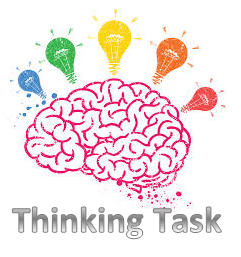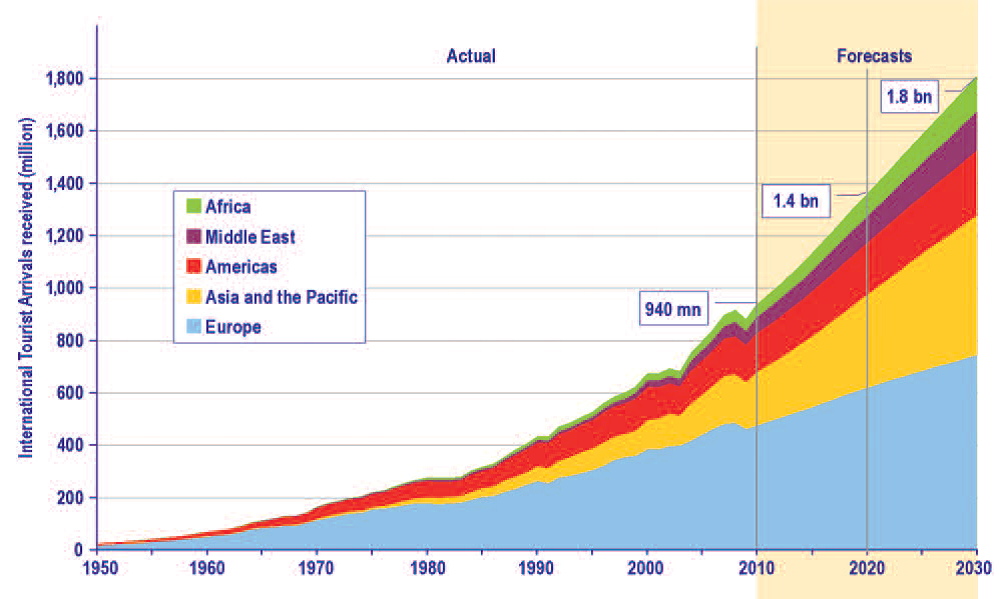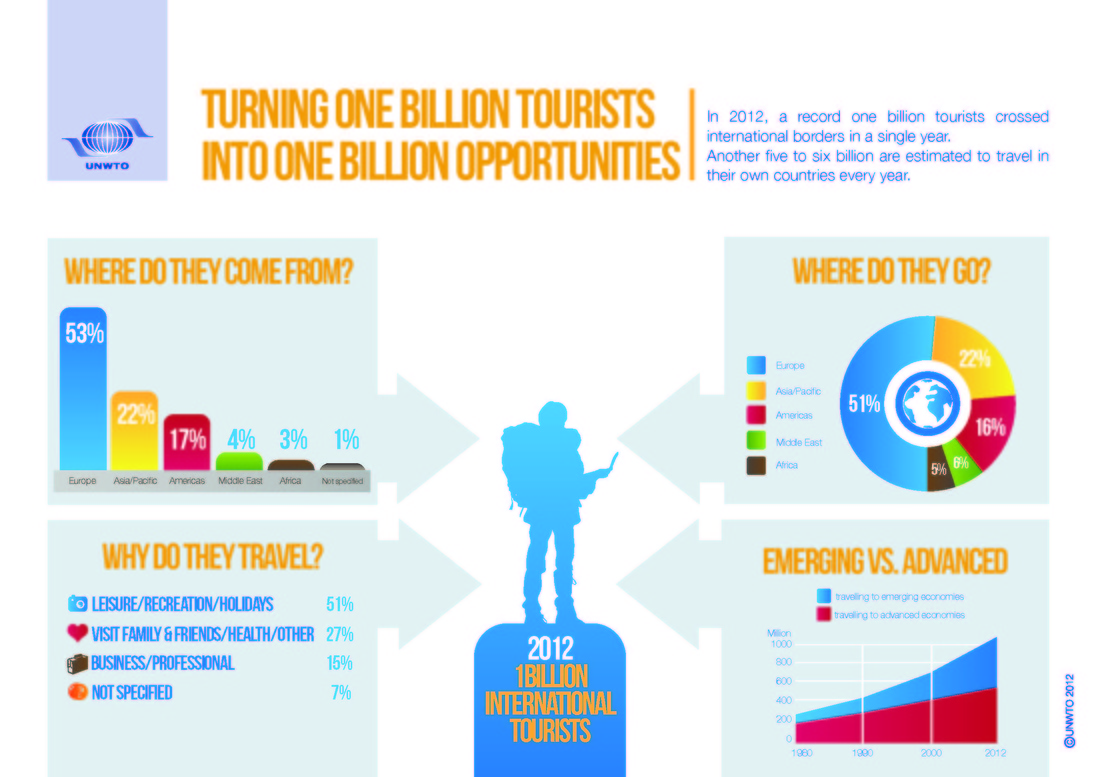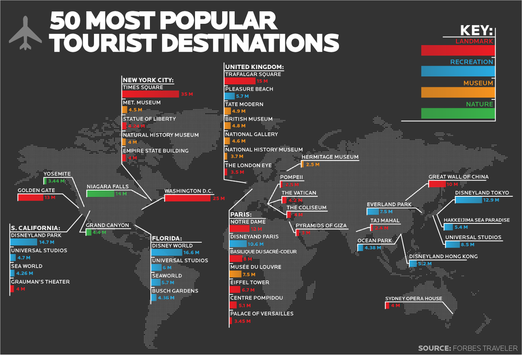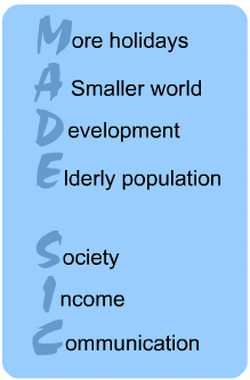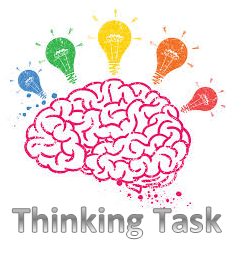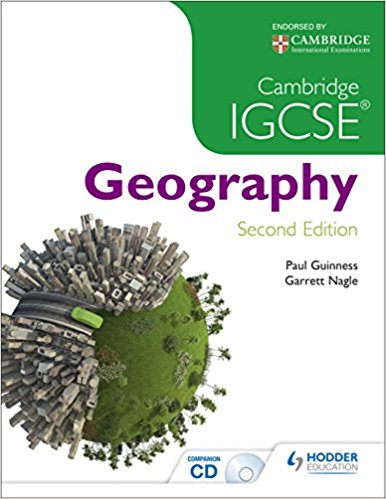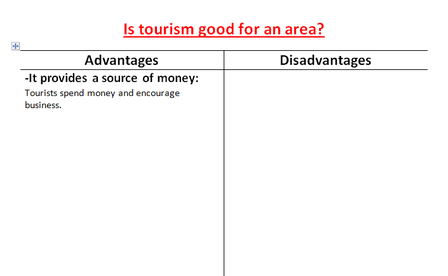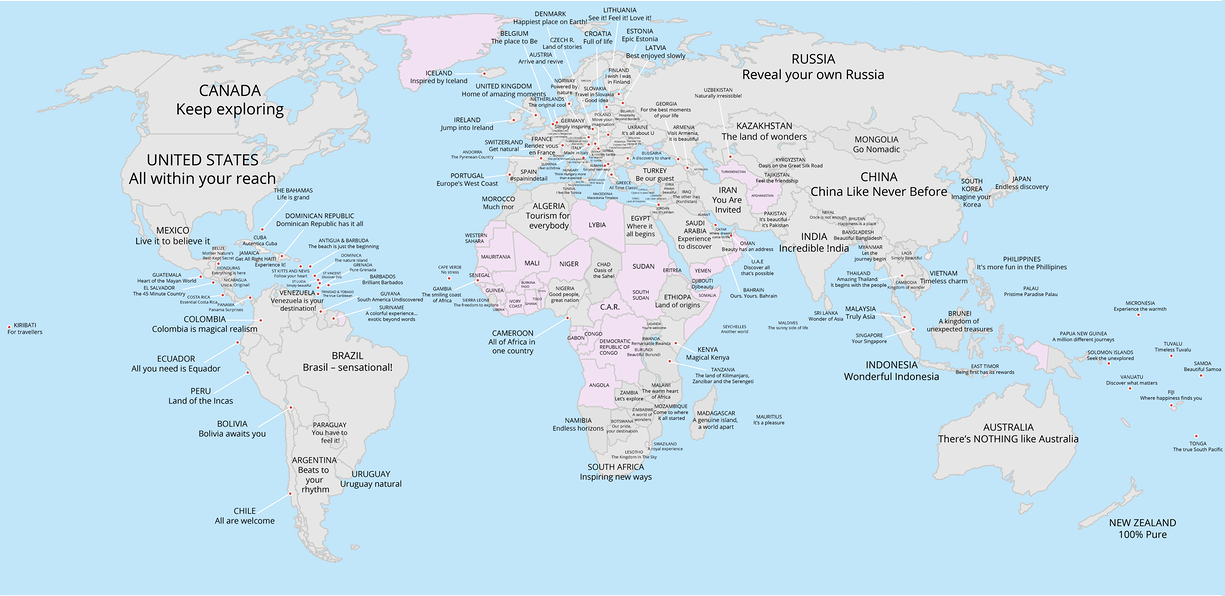Please help keep the Geographer Online a FREE resource
Tourism
Your browser does not support viewing this document. Click here to download the document.
| tourism.pdf | |
| File Size: | 111 kb |
| File Type: | |
What is it?
|
Time which you can spend as you like, especially when you do not have to work.
|
The business or industry of providing information, accommodations, transportation, and other services to tourists.
|
|
Extension:
Using the "100 Best Things to do in France" link examine the types of tourist attractions a person might visit in one of the most visited tourist destinations in the world. Ensure that you use named examples of places to make the information relevant. |
|
| Global Tourism | |
| File Size: | 12772 kb |
| File Type: | pptx |

Describe the following graphs.
REasons for the growth in tourism
|
1. More holidays.
All countries in the developing world have increased the number of holidays a person can expect to receive by law. A hundred years ago a person would be lucky to receive one day for a summer holiday - even luckier - to have this as a paid holiday. Today, as a result of stronger economies, unions and changes in society people can expect to receive a minimum four weeks paid holiday. Inevitably if people have more time then there is a greater chance that they will use some of that time in the tourism industry. There is even more chance that they will go on holiday if they have a higher income. 2. A smaller world. The world is getting smaller! It now takes just 24 hours to reach countries on the other side of the world. You can now fly to France for £50! A nationwide motorway network has meant you can drive from one end of the UK to the other in twelve hours. The channel tunnel means that we can be in France in half an hour. Pop to Belgium for the weekend, fly to France for a surf! Twenty years ago, Cairns (North East Australia) was just a tiny town. Today it is a world famous city. Why? - They built an airport. The more the transport network develops and the cost of fuel drops (yes drops! Fuel is cheaper today then ever before if you take into account the increase in wages) the greater the chances to go on holiday, the greater the growth in tourism. 3. Development. Tourists spend money - lots of it! £25 billion in the UK in 1990 and so tourism can be developed by Governments in the developed and developing world to provide employment, earn foreign currency and diversify the economy. In the UK, most major cities have looked to tourism as a tool of regeneration. In Bristol, £s;98 million has been spent regenerating the harbour-side to provide a range of tourist attractions including a new IMAX cinema and hands-on science museum. In Zimbabwe, Operation Campfire sells hunting licenses to tourists to control animal populations and uses the profits to build schools and hospitals for the rural population. The growth of tourism in the developing world is a very significant part of the world market. |
4. Elderly population.
Half of the world is getting wrinkly! Numbers of retired people in the developed world are higher than ever before. They have cash and are living longer than ever before. Early retirement, pensions and better health care has meant that the pensioner pound is a very important influence in the growth of tourism and, its not all coach trips to Bognor. AJ Hackett (first person to run a commercial bungee jump operation) lets pensioners jump for free! As entrepreneurs respond to this large and wealthy population, tourism will continue to grow. 5. Society. Today's society is changing. After the World Wars people realised there was more to life than work and Blackpool. Many of the men had been stationed overseas and came back with experiences of new places, culture and cuisine. The women had to work in traditionally male jobs and society changed forever. Women working increased family income making foreign holidays more affordable. People now consider a holiday as an essential not the absolute luxury it used to be. Many put this down to the stresses of modern life! 6. Income. We earn more than ever before. Prices are comparatively cheaper than ever before. Consequently we have a greater disposable income than ever before. Disposable income is the money left after we have purchased essentials that we can spend on what we like including holidays. Add this to the reduction in air-fares and cheaper package holidays and tourism must increase. 7. Communication. The communications revolution is the next big thing in tourism. Companies like GO and Last minute.com are already developing the Internet as a tool for booking holidays. You can take a walk through your hotel online, check out the views, find out about the nightlife - and all this before you book! It's advertised as faster and cheaper than going down to the high street. |
IGCSE Style Question:
Explain why the tourist industry as grown [5]
Explain why the tourist industry as grown [5]
Is tourism good for a country?
|
|
|
|
Managing the tourist industry
Sustainable tourism
Sustainable tourism: Tourism that takes full account of its current and future economic, social and environmental impacts, addressing the needs of visitors, the industry, the environment and host communities
Sustainable tourism should:
- Correctly use environmental resources so as to keep the ecology healthy and to preserve the natural environment and biodiversity.
- Respect the people and communities and work towards preserving culture, heritage and traditional values. It should encourage positive interaction and tolerance.
- Ensure long term economic benefit to all people. This should be fairly distributed and include stable employment to the host community and work towards alleviating poverty.
|
|
|
|
Examine the document on the right and identify 5 examples of how tourism can be sustainable. Now imagine you run a tourism company, what could you do given the 3 criteria above to make tourism more sustainable?
|
| |||||||
Bali - Indonesia
Create a report by answering the following points (lay this out in the form of a case study):
Article:
Tourism tale from Bali:
Growth and sustainability
- Where is Bali?
- What are Bali's tourist attractions?
- What are the problems tourism has caused in Bali?
- What are people trying to do the solve the problems?
- How successful have they been?
Article:
Tourism tale from Bali:
Growth and sustainability
|
|
|
|
